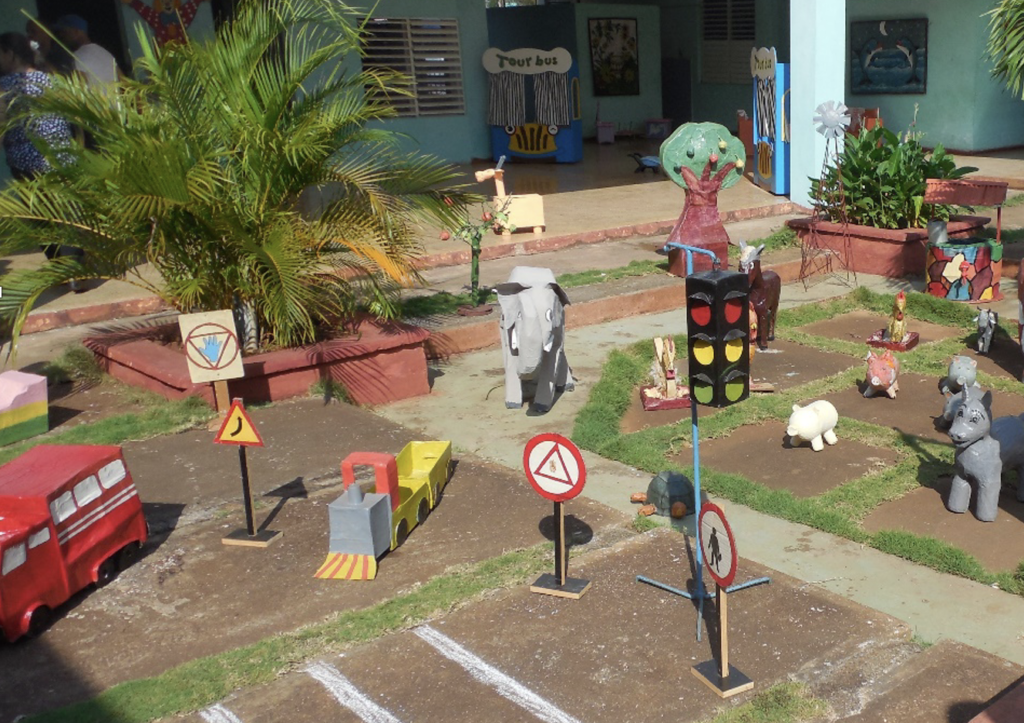I traveled to Camagüey, Cuba, in March with 21 faculty members and graduate students from the University of Maryland and George Washington University for the 30th edition of a Cuba-US educator exchange. We engaged in small- and large-group discussions with Cuban colleagues and visited a range of educational institutions in that province.
Sometimes I posed the question regarding the impact of the 60-plus year blockade (some call it an embargo) and Presidents Trump’s and Biden’s placement of Cuba on the State Department’s list of State Sponsors of Terrorism. Other time Cuban educators and students raised the issues on their own.

What angered me were the devastating impacts of these unilateral coercive measures by “my” government—but I was amazed by the resilience of those residing in this country located just 90 miles off the coast of Florida.
Educators and students that we met mentioned that some of the challenges they faced were a residue of impacts of the Covid pandemic (which not only required schools to close for a few months, but also severely limited government, private sector, and family income), but they emphasized these impacts were exacerbated by the US embargo and Cuba’s placement on the list of State Sponsors of Terrorism.
Various Cubans spoke of the hardships and challenges they and their families faced. These included the limited availability of and high prices for food, including flour, sugar, milk powder, and cooking oil. We also observed how Cuba’s excellent healthcare system was suffering because of difficulties in importing medicine and surgical supplies. At a biotechnology research center we gained insights about the difficulties of obtaining the ingredients and equipment needed for producing medications, including the five Covid vaccines that Cuba’s biopharma industry developed.
When we visited different educational institutions, we learned about the challenges the educators and students faced. Given the shortage of fuel for generators, there are reduced hours with electricity. We witnessed times when there was no power to make powerpoint presentations and we entered classrooms and cafeterias which could have benefited from artificial lighting.
At all the schools and universities that we visited, representatives told us about shortages of basic teaching and learning materials, such as paper, pens, and pencils. Our delegation made a little dent in this problem by bringing such things as part of the donations we made at each institution to thank them for their hospitality. Our donations, however, did not address the limited supplies of chemicals and supplies that were needed in science laboratories in schools and universities. Nor did our donations on this trip provide for other needs, such as leotards and ballet slippers that were in short supply and in deteriorating condition at the Vicentina de la Torres Art School.
Professors at the University of Camagüey and the Carlos J. Findlay University of Medical Sciences informed us about their challenges in obtaining visas to travel to the US to attend conferences and how the blockade’s and SSOT list’s financial restrictions hampered their efforts to conduct research and other collaborative projects with colleagues at institutions in other countries in Africa, Asia, Europe, and Latin America.
It was noteworthy that many of the faculty members at the medical university had spent time in developing countries treating patients as part of medical brigades or in teaching courses in these countries’ medical training institutions.
While the challenges that our Cuban colleagues faced were often mentioned and very visible to us, the creativity and resilience of our hosts were also notable. In this regard, two institutions in the rural community of Sierra de Cubitas stands out: the Children’s Circle [preschool] “Smile for the Future” and the primary school named after the Mariana Grajales Cuello, the daughter of Dominican parents of mulatto race who was a heroine in Cuba’s wars for independence from Spain.
Granjales ran hospitals and provision grounds in base camps and frequently entering the battlefield to aid wounded soldiers, both Spanish and Cuban. At these institutions, teachers and parents devoted time and material resources to create instructional materials that the schools could not afford to purchase.
My UMD and GWU colleagues and I came away from these and other encounters with a deep sense of awe for our Cuban friends, who in the face of the blockade and Cuba’s inclusion on the SSOT list found ways to meet their daily living challenges as well as to make children’s and youth’s educational experiences valuable and productive.






